A passion for Mathematics and research led Nguyen Cam Tu to teach at one of the first AI (artificial intelligence) training schools in China.
Nguyen Cam Tu, 40 years old, is an Associate Professor at the School of AI, Nanjing University. This is a school in the C9 group - the nine best universities in the country, considered the Ivy League of China. According to the 2024 university rankings of THE, Nanjing University is in the top 20 in Asia and ranked 73rd in the world .
Tu's research direction is in the field of conversational AI. She teaches, guides students in researching, and builds AI systems that can simulate human conversations. Tu is also the author of more than 50 articles published at the world's leading conferences and scientific journals such as EMNLP, IJCAI, TKDE...
"I didn't set out to become a professor. I just tried to do my job better than yesterday and everything came naturally," Tu shared.

Associate Professor Nguyen Cam Tu. Photo: Provided by the character
Tu used to be a student majoring in Mathematics, now at the High School for the Gifted in Natural Sciences, Hanoi National University. After graduating from high school, she chose to pursue Information Technology at the University of Technology, Hanoi National University. According to Tu, this major requires both computational skills and practical applications.
Studying in an environment with many "experts" in natural sciences in the North and Central regions, Tu excelled and became the valedictorian of class K46 in Information Technology. She was then in charge of manufacturing technology products at a company. But after only about a year of working, Tu returned to the path of research and completed a master's program, also at the University of Technology.
"I prefer doing research because I get to explore new things. Although it's challenging, I really want to pursue it," Tu said.
When she switched to research, Tu had many opportunities to talk and collaborate with foreign lecturers. Realizing that the direction of the professors at Tohoku University, Japan, was similar to her development direction, in 2008, Tu did her PhD in Computer Science there. In addition, she also worked at Google Japan, participating in a number of projects to develop artificial intelligence applications.
During this time, Tu also followed the research activities on artificial intelligence in China, especially that of Professor Zhou Zhi-hua - a rising star in AI at that time. Her interest in a culture similar to Vietnam and the perception of a dynamic research environment, urged her to choose China as her next destination, after completing the program in Japan in 2011.
In 2012, Tu went to Nanjing University to do postdoctoral research under the guidance of Professor Zhou Zhi-hua. Four years later, she started teaching at the Software Institute of Nanjing University.
At first, Tu faced a language barrier. She taught in English, but some students spoke to her privately in Chinese after class. To help, Tu learned to communicate in Chinese, gradually improving her listening and speaking skills through conversations while teaching. However, there were still "tragicomedy" situations when students did not understand the messages Tu sent. Many times, Tu called students to talk directly instead of texting.
"The best thing about teaching in Nanjing is that the students are all very hard-working and excellent. I learn a lot from them," Tu said.
After three years, Tu transferred to the AI School - a new member of Nanjing University, one of the first AI training institutions in China. Tu said this was the most difficult time of her career. She had to set up and orient the new research group, and participate in building the curriculum framework for some subjects.
The subject that Tu is most interested in, finds interesting but also very worried is Artificial Intelligence Ethics. Not only Tu but also the lecturers in the school are not sure what to teach, because there are not many similar subjects in the world. Tu has to read a lot of documents, not only about AI but also about philosophy, society, and law. From there, she comes up with the main topics for the subject, for example, the impact of AI on society or the issues of privacy and equality when using AI.
"Although this subject is not directly related to engineering, it has opened my eyes a lot," Tu said.
According to Tu, Nanjing University is the strongest in basic research on machine learning theory and reinforcement learning. Lecturers must both promote the school's strengths and grasp new trends that the world is interested in. Tu realized that AI systems equipped with language capabilities have great application potential, associated with many challenges and interesting problems. She decided to pursue the field of conversational intelligence, both doing research and collaborating to build chatbots (online chat robots) with corporations such as Oppo or Alibaba.
Associate Professor, Dr. Phan Xuan Hieu, University of Technology, Vietnam National University, Hanoi, who has accompanied and guided Tu in her research since university and has worked with her until now, said he admires her professional ability and positive energy at work.
"Cam Tu has a solid foundation in Mathematics, a passion for research, and is slow and calm. Not in a hurry to go fast, Cam Tu always moves forward, achieving meaningful results with the intelligence, perseverance and courage of a Vietnamese woman in a foreign land," he shared.

Associate Professor Nguyen Cam Tu on the campus of AI School, Nanjing University. Photo: Provided by the character
In the future, Tu plans to continue promoting the research group she is in charge of at Nanjing University. She also hopes to connect with schools in Vietnam to support students in doing research.
To study and research computer science at the world's top universities, Tu believes that students need to have a clear orientation and solid background knowledge such as machine learning. Tu advises students to participate in research from the university level, showing passion and motivation for self-development - a factor that professors are very interested in.
She shared about the three stages of research development that Nanjing professors guide students through. The first step is to investigate (synthesize, read information to know the research status on the problem that interests you), then to imitate (grasp the technology and follow it) and then to create.
In addition, Tu said that Vietnamese students have many opportunities to study AI in China because of its good foundation in mathematics and natural sciences. Meanwhile, to realize its ambition to become a leader in technology, the Chinese government also has many policies to prioritize AI development, promising a dynamic learning and research environment.
Looking back on her journey, Tu said that doing research and teaching was her motivation to develop, not achieving a high academic position. She did not often think about having to succeed, but simply pursued her passion every day. Her students are now working at many large technology companies such as Microsoft, Huawei or ByteDance...
"What I am most proud of is seeing students succeed," Tu shared.
Vnexpress.net


![[Photo] National Assembly Chairman Tran Thanh Man receives Chairman of the House of Representatives of Uzbekistan Nuriddin Ismoilov](https://vphoto.vietnam.vn/thumb/1200x675/vietnam/resource/IMAGE/2025/10/27/1761542647910_bnd-2610-jpg.webp)


![[Photo] The 5th Patriotic Emulation Congress of the Central Inspection Commission](https://vphoto.vietnam.vn/thumb/1200x675/vietnam/resource/IMAGE/2025/10/27/1761566862838_ndo_br_1-1858-jpg.webp)

![[Photo] Party Committees of Central Party agencies summarize the implementation of Resolution No. 18-NQ/TW and the direction of the Party Congress](https://vphoto.vietnam.vn/thumb/1200x675/vietnam/resource/IMAGE/2025/10/27/1761545645968_ndo_br_1-jpg.webp)


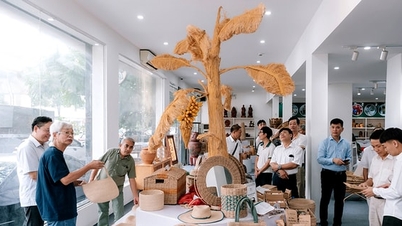






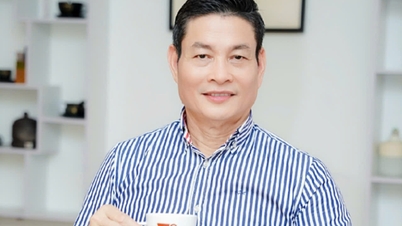






























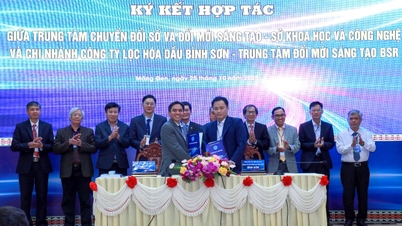



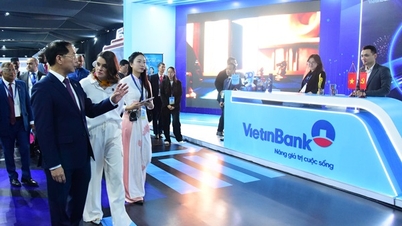












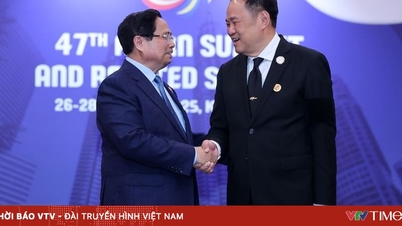



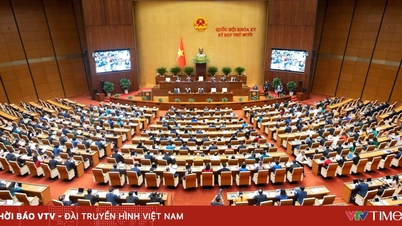
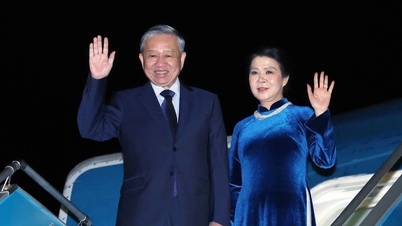
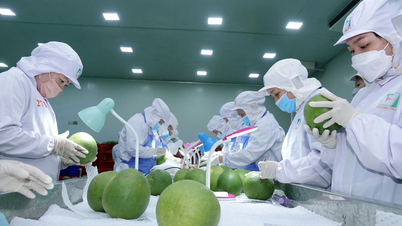
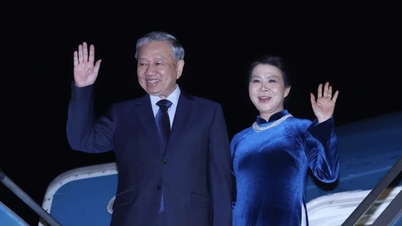
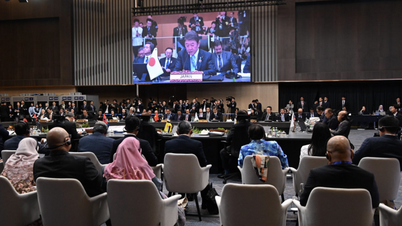

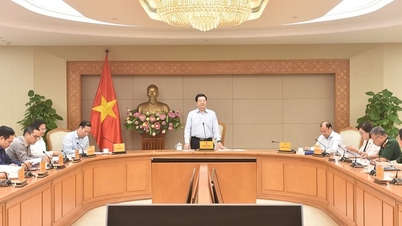

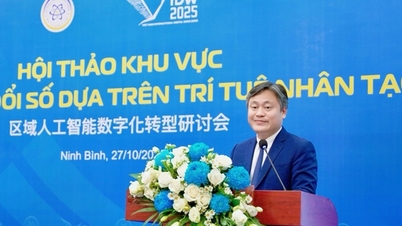
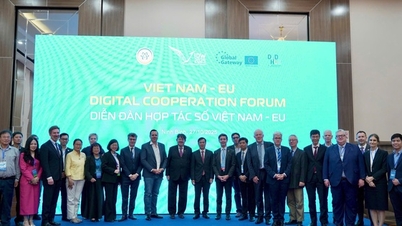
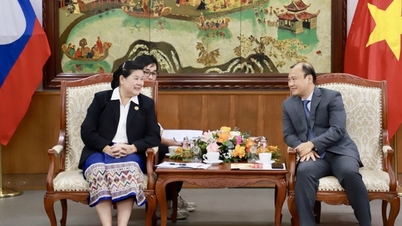
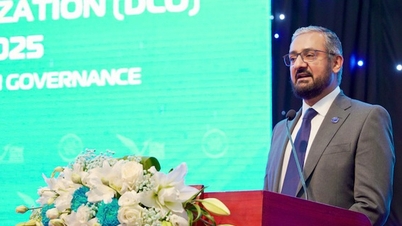


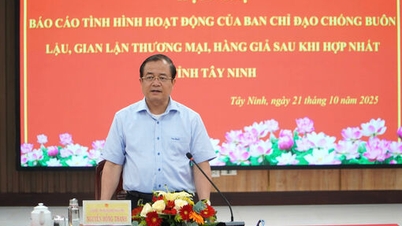


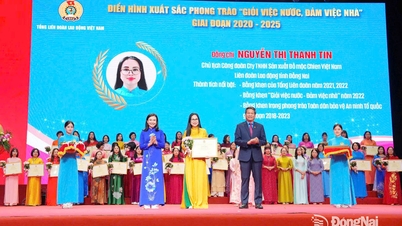

















Comment (0)